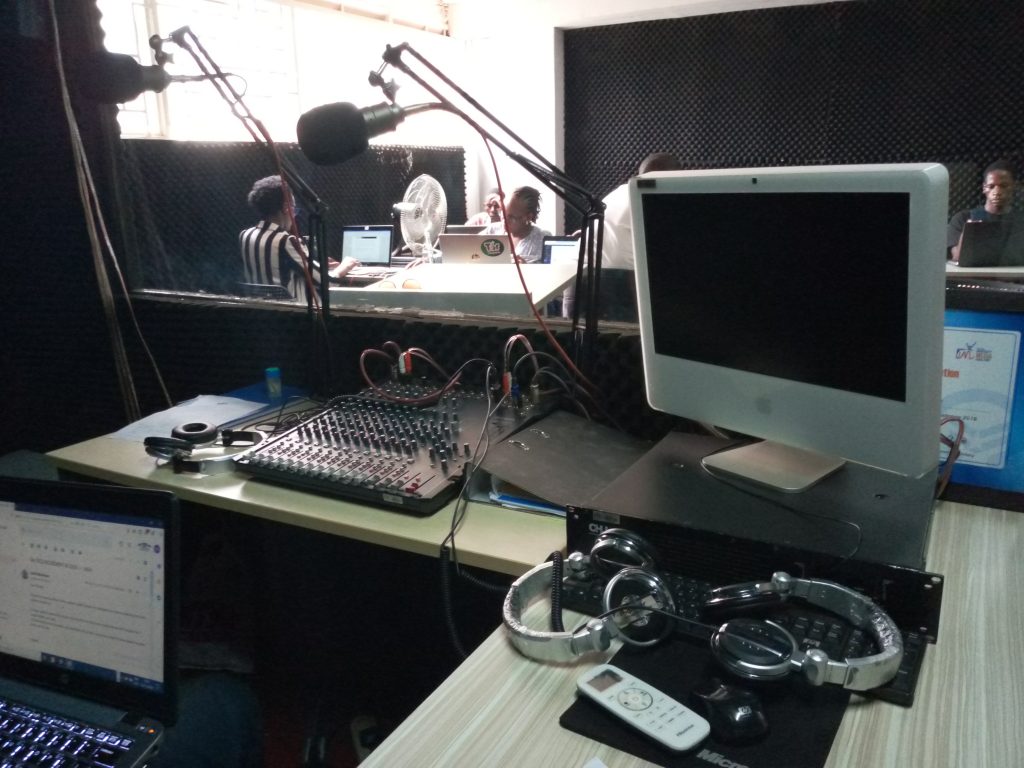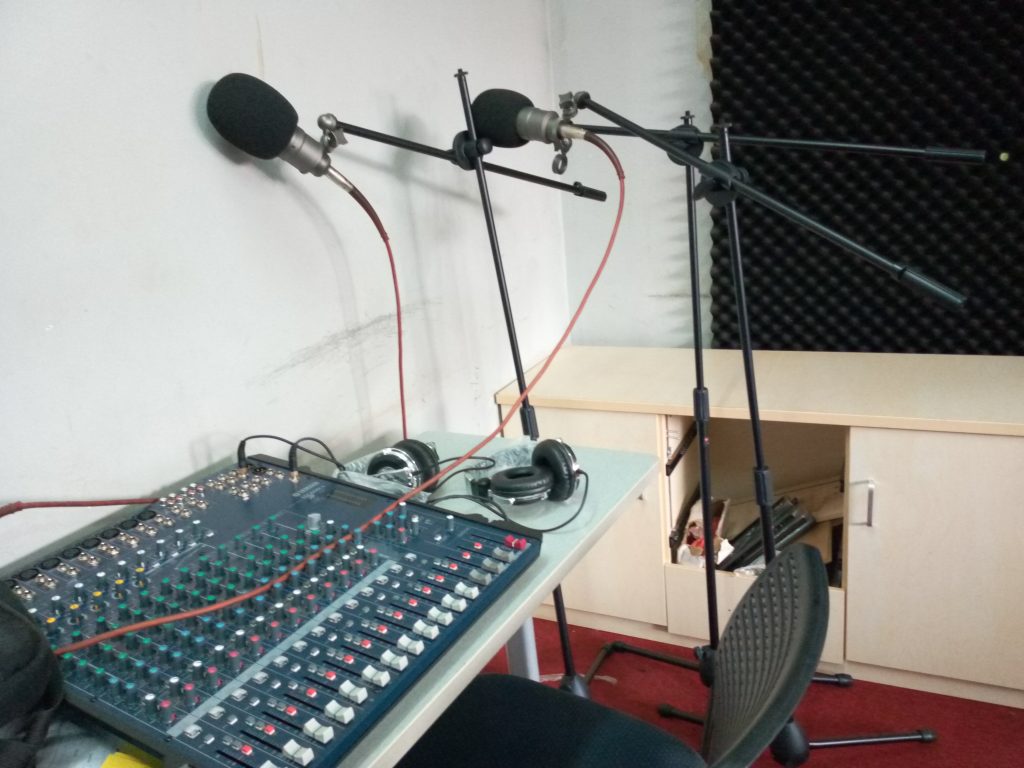Cavendish university has setup a modern radio studio for practical training of journalism students.

Just like other universities in Uganda, Cavendish has for the past ten years of its existence suffered the same fate of theoretical journalism training.
However, with the new management on board, journalism has been given a face lift. Given the practical nature of the journalism course, the university decided to setup a radio studio so as to conduct more practical than theoretical training. To effectively conduct practical courses, the university has employed a full-time media expert to conduct training in the field of journalism.
New journalism equipment procured by the university
The university also procured a professional video camera for television production among other equipment. The university wants journalism students to be well prepared for the competitive job market.

The purchase of the equipment and the setting up of the studio were received with excitement from the entire journalism students. Mr. Joshua Nsereko, a second-year student of journalism is, however, optimistic that he will get practical skills before he graduates from Cavendish university. “The studio is going to help me with the practical training, preparing me for the work force and being employable. It’s also going to help me gain confidence in what am studying.” Mr. Nsereko, however, added that: I will also learn what I never knew before and expand my knowledge.”
Studio to ease teaching at Cavendish University
The establishment of the studio and purchase of other equipment will not only help students acquire practical skills, but it will also ease teaching at the university. Many times, students are assigned projects for course works and they have always found it hard to produce such projects on time because of lack of equipment. However, this is becoming a thing of the past since some equipment are already available and the university is still buying more equipment.
What lecturers think about the studio
Mr. Habib Semakula, a lecturer in the department of Journalism, however, thinks that the establishment of the studio for Journalism students will not only help students get practical training but will also prepare students for self-employment. “It’s a very good initiative because it is going to provide students with practical skills and hands-on training.” Mr. Semakula also added that: “Basically, students will learn how to do production and later start-up their own studios and do their own work.
Mr. Semakula also stressed the need for practical training of Journalism students. He said: “Journalism is literally a practical art. So, in addition to the theories like communication skills and Art of public speaking, there are things in journalism which will require a student to invest in like; sound recording, editing, and animation. All these have to be practical.” Mr. Semakula also stressed that it is wrong for institutions offering the Journalism course not to have practical training facilities like a studio. “I must say that it is academically wrong for institution teaching journalism to have no studio for the practical part to offer to its students,” Mr. Semakula warned.
Journalism work to be project oriented
Mr. Herbert Mudoola, the Head or Department, Journalism and Media Studies was, however, grateful for the university management to fulfil the long-time request of the department. He also said that Journalism training at Cavendish university will now be project-oriented. “Training is changing and it is going to be more project-oriented whereby most of our course works and exams are going to be more practical than theory,” Mr. Mudoola said, adding that: “In order to produce an all-round journalist, our students have the chance to acquire all the skills in the particular fields.”
Mr. Mudoola advised that students must have practical skills because this is what employers are looking for. “Most media houses are interested in a Journalism graduate who is practical and has skills that can benefit that media organization employing him/her,” Mr. Mudoola advised. He also said that practical training of the students in the universities will also help students identify potentials. “Students will also identify their potential easily and develop their skills in different fields,” Mr. Mudoola said.
The dean of the faculty of Socio-economic Development, Dr. Alice Wabule who lobbied for the equipment said that journalism students will no longer rely so much on theoretical training. “Our students will not have to rely on the theoretical part only but will go further to do the practical beat of it,” she said, adding that: “We have surely gone a step in the right direction having seen the equipment that were brought.”
More equipment needed for better work
Better yet there is need to continue equipping the studio with more equipment in order to have enough material to be used by various students at the same time when need arises. In some events where we participate as journalism students like the media challenge inter university competitions, we need to have as many machines as we can especially cameras and editing software, this helps us to gain more skills while replicating real life journalism and also graduate as all round journalists.
